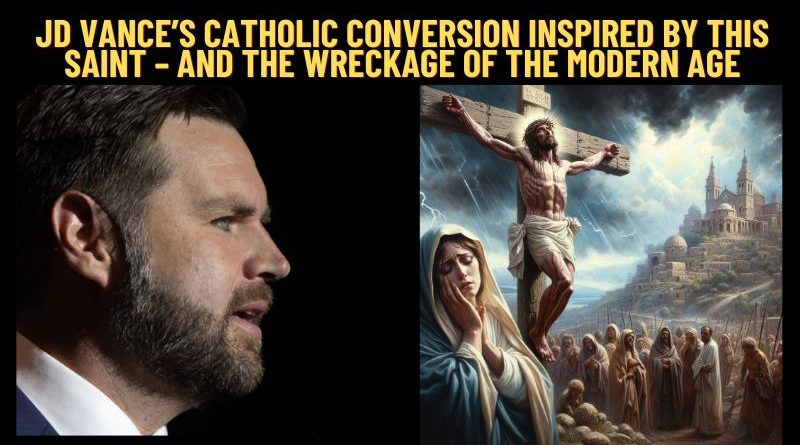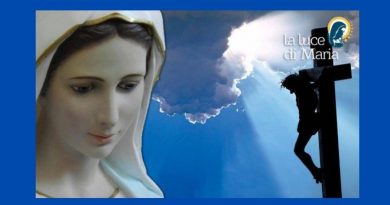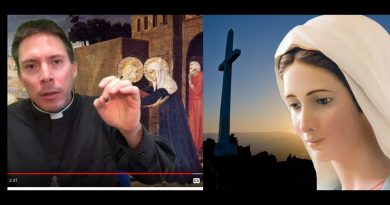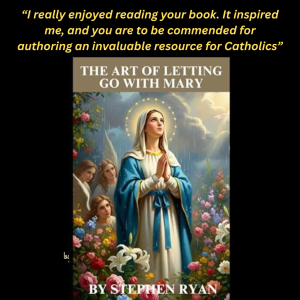JD Vance’s Catholic conversion inspired by this Saint – and the wreckage of the modern age
The start of the 1996 film Jerry Maguire begins with our hero, the same-named sports agent played by Tom Cruise, suddenly getting an attack of morals about the way the sports management business he is in conducts itself and treats its clients, often young, impressionable sports stars.
During a long-night-of-the-soul episode, he pens a manifesto/mission statement laying out what’s wrong with the industry and what needs to change, focusing on working with fewer clients to produce more caring relationships. Then, in an even more audacious moment, he sends it (by fax) to everyone in the business.
Initially, it seems that he has become a hero – everyone praises him for speaking out and trying to improve what needs improving. But then it begins, the system pushing back: over lunch he is fired, and then one by one his own clients start to leave him and he ends up with no one, a pariah for daring to buck the status quo.
JD Vance, the newly nominated running mate for Donald Trump, recently had a similar “Jerry Maguire” moment, penning a long, heartfelt and very revealing essay for Catholic journal The Lamp, detailing how and why he became a Catholic.
His explanation, titled “How I joined the resistance”, reads like a Catholic mission statement. His turn to Catholicism is shown to be inextricably caught up in, and a response to, the dreadful state of society Vance grew up surrounded by and which actually continues even when he finds himself in the higher echelons of society, where as he trains to be a top-flight lawyer he finds himself submerged in hyper competitiveness, hubris and hollow careerism.
Fortunately for Vance, and unlike Jerry Maguire, given how many people aren’t interested in Catholicism or what it has to say about the state of the world, his manifesto hasn’t caused much reaction or led to much comment.
Though it is the most read article on The Lamp website, as it should be. It’s fascinating. Any US Catholic, whether leaning Democrat or Republican, should read it to get a better understanding of the man and where he is coming from. Especially given that, as Trump’s running mate and vice president nominee, Vance now has a real chance of becoming the country’s third Catholic president in 2028 (if Donald Trump wins, he can only serve one term up to 2028).
Vance describes how he grew up with religion in the background thanks to his beloved grandmother who took care of him much of the time – though he highlights how much she mistrusted Catholicism, finding its liturgy and habits particularly peculiar – and notes that his “least favourite” passage from Scripture was Numbers 14:18: “The LORD is slow to anger, abounding in love and forgiving sin and rebellion. Yet he does not leave the guilty unpunished; he punishes the children for the sin of the parents to the third and fourth generation.”
He explains that previously he took this as “evidence of a vengeful, irrational God”, helping to drive him away from religion. But now, he says, he reads it very differently, because “who could look at the statistics on what our early twenty-first century culture and politics had wrought—the misery, the rising suicide rates, the ‘deaths of despair’ in the richest country on earth, and doubt that the sins of parents had any effect on their children?”
He goes on to say that, as a result, the words of Saint Augustine “echoed from a millennium and a half earlier, articulating a truth I had felt for a long time but hadn’t spoken”.
Vance cites a passage from City of God, which he had to study at college, in which Augustine summarises the decadent ways of Rome’s ruling class, the saintly scholar writing his critique from the perspective of that same debauched class:
“This is our concern, that every man be able to increase his wealth so as to supply his daily prodigalities, and so that the powerful may subject the weak for their own purposes. Let the poor court the rich for a living, and that under their protection they may enjoy a sluggish tranquillity; and let the rich abuse the poor as their dependants, to minister to their pride. Let the people applaud not those who protect their interests, but those who provide them with pleasure. Let no severe duty be commanded, no impurity forbidden. Let kings estimate their prosperity, not by the righteousness, but by the servility of their subjects. Let the provinces stand loyal to the kings, not as moral guides, but as lords of their possessions and purveyors of their pleasures; not with a hearty reverence, but a crooked and servile fear…”
The passage goes on, with St Augustine giving many more examples of folly and a broken society, leaving one hard pushed not to agree with Vance’s summation that:
“It was the best criticism of our modern age I’d ever read. A society oriented entirely towards consumption and pleasure, spurning duty and virtue.”
Vance notes that at the same time he read St Augustine, his friend Oren Cass published a book “arguing that American policy makers had focused far too much on promoting consumption as opposed to productivity, or some other measure of wellbeing”.
His friend’s book – like Jerry Maguire’s attempt at offering some home truths – was not well received, Vance points out, being heavily criticised for “daring to push polices that might lower consumption” and upset the status quo.
This condemnation left Vance bemused, he says, noting that “If people die sooner in the midst of historic levels of consumption, then perhaps our focus on consumption is misguided”.
And it was this revelation, Vance explains, “that ultimately led not just to Christianity, but to Catholicism…I slowly began to see Catholicism as the closest expression of [my grandmother’s] kind of Christianity: obsessed with virtue, but cognisant of the fact that virtue is formed in the context of a broader community; sympathetic with the meek and poor of the world without treating them primarily as victims; protective of children and families and with the things necessary to ensure they thrive. And above all: a faith centred around a Christ who demands perfection of us even as He loves unconditionally and forgives easily.”
There is a lot more that Vance offers, including how his exposure to the French Catholic philosopher René Girard also greatly influenced his journey toward Catholicism as an answer to the “madness of the crowds”.
It’s pretty searing stuff, especially to read as a non-American. It is close to nigh-on impossible for a British politician to write such a thing publicly, and to so candidly address how their religion informs their thinking and heart.
The political costs are too high – just look at what has happened to SNP politician Kate Forbes for simply being known to be an active Christian, and the Liberal Democrats’ decision to reportedly deselect parliamentary candidate David Campanaleo over his Christian beliefs.
I don’t want to live in a theocracy. I am very glad we don’t have such a system dictating our ways. I don’t want to live in a Catholic integralist society either. But I still think it is impressive, and exciting, to have a figure like Vance on the scene, speaking about the intersection of faith, virtue and society so daringly.
If more politicians and figures of authority could manage what Vance does – or at least just be a bit more like Jerry Maguire – we might actually get somewhere in addressing the problems of today, rather than the continual posturing, often over appalling policy that, as Vance lays out in his article, is proving so destructive and causing such misery.





